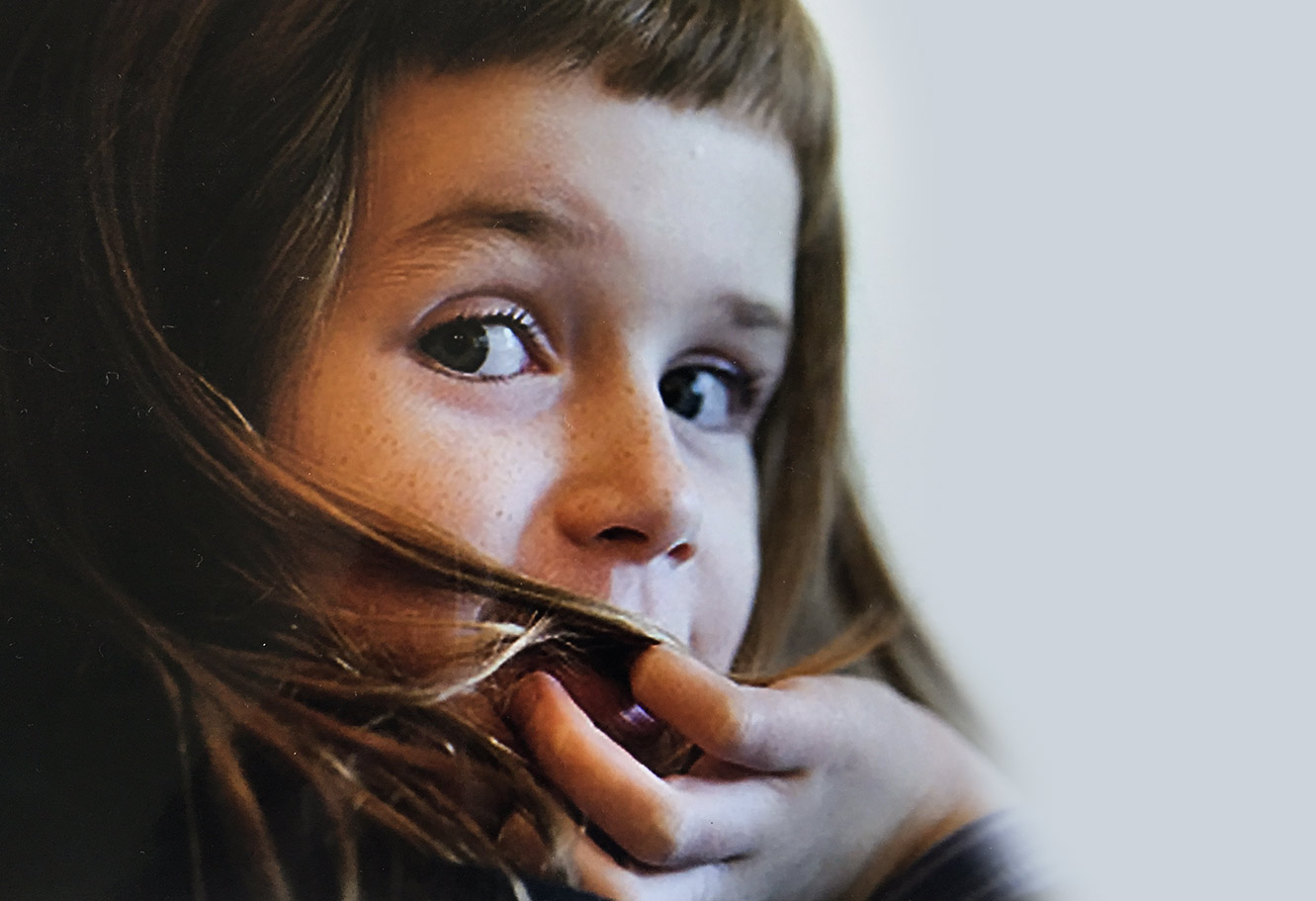
How to Talk to a Sick Kid, From a Former Sick Kid
By the start of first grade, Molly M., of Minnesota, had learned the ropes of health care.
A survivor of brain tumor surgeries at ages 2 and 6, she had endured enough needle-pokes to take charge of IV technicians aiming for her best veins.
On more than one occasion, the freckle-faced kid with bangs looked a phlebotomist in the eye and said, “Let’s make this one-and-done.”
A Very Long Health Journey
An MRI veteran before kindergarten, Molly learned to bring from home her own music to drown out the jackhammer-like noise inside the tube. In the early days, her go-to was the The Little Mermaid soundtrack.
As Molly’s brain tumors were benign (gangliogliomas), surgery was her cure. No chemo. No radiation.
The only outward mark of what has been a very long health journey is a question mark-shaped scar at her right temple, visible when she pulls her hair into a high ponytail.
Former Sick Kid Becoming an RN
Molly, above, at age 7, and today at 21. Now a nursing student, she shows her “Little Mermaid” soundtrack and a doll given to her by an MRI nurse.
Fifteen years since her second surgery, Molly continues to be monitored for tumor recurrence. She remains enrolled in the landmark Long-Term Follow-Up (LTFU) study, measuring the long-term effects on children of treatment for serious illness.
Now 21, in excellent health, and studying to become an RN, this former sick kid shares tips from her personal perspective on how grownups can best communicate with pint-size patients:
Tip 1: Hello … I Can Hear You.
“So many times, I remember conversations going on actually above my head. I was young, but I knew they were talking about me. I wasn’t yet able to put my feelings into words, but I definitely didn’t like it. One thing that registered with me, all those years ago, was when my favorite doctor, neurosurgeon Walter Hall, would sit on a low stool in the exam room so he could ask me questions directly. It put us on the same eye level.”
Tip 2. Let’s Talk About Cinderella.
“I was a patient at a teaching hospital, and the same Dr. Hall—quite tall in my mind’s eye, but as I was just a peanut he could have been any height—traveled with an “entourage.” The people in white coats, now I know them as residents and med students, asked about my bowel movements (gross) and how I would describe my level of post-procedure pain (what?). But Dr. Hall always inquired about Cinderella, Little Mermaid and Pocahontas. My idols! I’m sure he asked medical questions, too, but because he hit on my ‘area of interest,’ I was Miss Cooperative.”
Tip 3. Just the Facts, Ma’am.
“As sick kids should do, I left management and discussion of scary health details to my parents. It was only important to me that Kit-Kat bars were available in the hospital gift shop, that my partially shaved head could still hold a braid and that I could wear my Scooby-Doo dress home. When I got older, my parents would say things like, ‘If there are things you want to know, let’s talk.’ It was years before I took them up on the offers, but looking back, I liked knowing answers were out there, whenever I was ready to ask the questions.”
Care to Share Your Own Tips?
If you have tips on how to talk with kids who are in the midst of a health crisis, please add to the list in the “Comment” section directly below.
New to CaringBridge and Wondering What We Do?
CaringBridge is a nonprofit social network dedicated to helping family and friends communicate with and support loved ones during a health crisis through the use of free, personal websites. Know someone who could benefit from starting a CaringBridge site to keep loved ones informed and get the love, and support they need?